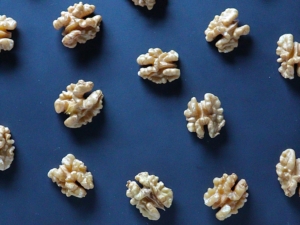
Novo Nordisk’s semaglutide fails in Alzheimer’s
Novo Nordisk’s semaglutide has failed to reduce the cognition deficit in two Phase III Alzheimer’s trials, dimming GLP-1 hopes. Anti-amyloid and combination therapies remain key for slowing decline.
Novo Nordisk’s GLP-1 therapy, semaglutide, failed to meet its primary endpoint in two pivotal Phase III trials for early-stage Alzheimer’s disease, delivering a major setback to hopes that metabolic drugs could slow neurodegeneration.
The Evoke and Evoke+ studies enrolled more than 3,800 participants to evaluate whether semaglutide could preserve cognitive function. After two years, the drug showed no significant improvement over placebo, although some Alzheimer’s-related biomarkers improved. Following these results, Novo has discontinued the one-year extension periods of both trials. Preliminary results will be shared at an Alzheimer’s-focused conference in San Diego on December 3, with full data expected at another meeting in March.
GLP-1 theory under scrutiny
GLP-1 receptor agonists, widely known for weight loss and cardiovascular benefits, have long been investigated for potential neuroprotective effects. Preclinical research suggested they could reduce brain inflammation, limit toxic protein accumulation, and improve insulin signaling—a critical process for memory, mood, and appetite regulation.
Earlier mid-stage trials with another Novo GLP-1 drug, liraglutide, also missed primary cognitive endpoints, though secondary data hinted at modest effects on grey matter and cognitive preservation. “Based on the significant unmet need in Alzheimer’s disease, as well as several indicative data points, we felt it was our responsibility to explore semaglutide’s potential, despite a low likelihood of success,” said Martin Holst Lange, Novo’s chief scientific officer.
Market and competitive implications
The trial setbacks caused Novo Nordisk shares to fall 8% to just under $44. Analysts note that competitors such as Biogen may benefit, as their anti-amyloid therapy Leqembi now faces reduced market competition. Andrew Tsai of Jefferies highlighted that had Novo succeeded, it could have raised awareness for Alzheimer’s treatments and enabled future combination therapies.
Howard Fillit, co-founder of the Alzheimer’s Drug Discovery Foundation, emphasized that the biomarker improvements could suggest a role for semaglutide in combination therapies. “Existing anti-amyloid drugs slow cognitive decline by around 30%, so therapies targeting complementary pathways will be crucial to address the remaining 70%,” he said.
While enthusiasm for GLP-1 therapies in Alzheimer’s has tempered, the broader obesity and metabolic drug sector—including Eli Lilly, Amgen, and Pfizer—faces only minor implications, according to Cantor Fitzgerald analyst Carter Gould.
Alzheimer’s drug landscape
Alzheimer’s remains a highly challenging target, with only a few therapies recently reaching the market. Biogen’s and Eisai’s lecanemab (marketed as Leqembi), an anti-amyloid antibody, has shown a roughly 30% slowing of cognitive decline in patients with early-stage disease. Other late-stage candidates, including tau-targeting therapies and neuroinflammation modulators, are still under investigation. Combination strategies, pairing anti-amyloid drugs with metabolic or anti-inflammatory agents, are increasingly seen as a promising approach to tackle remaining unmet needs.




